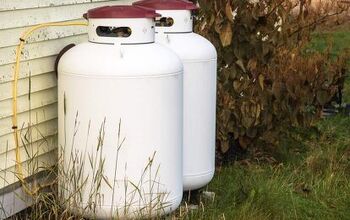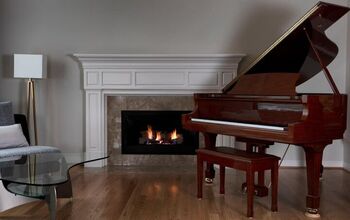Is It Legal For My Landlord To Lock My Thermostat? (Find Out Now!)

You might get excited when you see the words “heat included” on a rental sign. Heat and air conditioning can be some of the highest utility expenses when renting a home. Your excitement may change to confusion or anger when you move in and see that the thermostat is locked by the landlord.
It is legal for your landlord to lock your thermostat. Know who is responsible for paying the utilities before concluding whether or not you should have thermostat access. Research local heat and habitation laws as they vary from state to state. Portable heaters and wall unit air conditioners are good ways to reach more comfortable temperatures in your home when the thermostat is locked.
When you notice a lock on your thermostat, your first instinct might be to find a way to take it off. Before you try to pick a lock, you should look more deeply into the utility expense, and tenant rights in your area. Start by finding out who is paying the heat or air conditioning bill.
Do You Need to Hire Movers?
Get free, zero-commitment quotes from pro contractors near you.

Who Pays The Bill?
Before you dive deep into tenant laws in your state, you need to determine who is footing the bill for heat and air conditioning.
Utilities and their payment should be reflected in your lease. Most leases go into a bit of detail in regards to who is responsible for bills. Look for this information in your rental agreement.
Find out what type of energy your heat and air conditioning use. This is important, because you may be responsible for some utilities, like electricity, but your heat may run on oil or natural gas. It is not uncommon for apartment buildings to include heat but leave tenants responsible for electricity costs.
Where You Live Matters
Laws on landlord-controlled heat and air conditioning vary significantly from state to state. When you try to find out whether or not your landlord can lock your thermostat you first need to know what your tenant rights are.
City Tip: Some major cities have even more specific rules in regards to temperature in rental dwellings and habitat standards. Be sure to research your specific city to see if there are any laws that apply to your area.
Implied Warrant Of Habitability
Almost every state, there exists an implied promise in any rental agreement that is legally referred to “implied warrant of habitability.” This stipulation exists to ensure that tenants who rent spaces are entitled to a dwelling that is habitable. Temperature, especially in extreme climates, is included in the concept of “habitability.”
A lease does not have to stipulate safe temperatures. Still, it is implied that you must have access to heat and airflow. If your landlord locks your thermostat, it is within his or her right. However, the thermostat must be set at a reasonable and habitable temperature. If it is not, you can call the appropriate authorities and claim you are living in an inhabitable space.
Time Of Year
In some areas, the time of year plays a role in a landlord’s obligation to provide heat. The landlord can lock the thermostat throughout the year. At certain times of the year, he may be required to change the temperature or reprogram its settings.
Some cities have minimum temperature requirements in the fall and winter. These temperatures often go into effect on a specific day of the year. Find out the rules in your community to ensure your home falls within the legal temperature requirements.
Reasons Landlord’s Lock Thermostat
- Control Expenses. If the landlord is responsible for the heat bill it would make sense that he or she would want to control that expense as much as possible. When a landlord locks the thermostat this also helps lock in a fairly consistent price as to the expected heat costs.
- Home Safety. When a landlord locks the temperature in place, this also limits certain safety concerns. If you live in a particularly cold climate pipes can freeze. If you leave your apartment for an extended period of time and forget to turn on the heat pipes can burst and your house can flood. By keeping the temperature at a safe level the landlord can ensure the temperature never hits an extreme temperature.
- Limit Liability. Landlords have an obligation to provide safe and habitable living conditions. Therefore, a set temperature ensures limited liability. Even if the temperature is undesirable, if it is set within the guidelines of safe temperature within your area, then your landlord has limited his liability.
Get The temperature You Want
Your landlord may have ultimate control over the thermostat, but you have ultimate control over the temperature in your home. There are several items you can purchase to change the temperature and climate in your home.
Portable Heaters
Portable heaters are a highly effective way to heat your home when your landlord controls your thermostat. If you can not turn the heat up on the thermostat, these small heaters are a great option. They run off electricity, so you simply need to plug them in.
When you research which portable heater to buy, be sure to look into the energy costs. There are some energy saver heaters on the market, while others can run up your electric bill more if you leave them on frequently.
Wall Unit Air Conditioners
Wall Unit air conditioners are one common way to cool down your home, especially if your landlord locks the thermostat. As long as your home has standard windows that open, a wall unit air conditioner is often the most cost-efficient means of creating pleasant temperatures when it is hot outside.
Air conditioners can run up your electricity quickly. Look into energy saver products, as well as products you can program on a timer. This can significantly lower your electric costs.
TIP: If you do not have standard windows, there are portable air conditioners available. Research what type of unit works best for you.
Dehumidifiers and Humidifiers
Sometimes when the landlord locks the thermostat you may find yourself feeling particularly humid or dry. Humidifiers are common when the temperatures are especially low outside, as the cold tends to suck moisture out. A humidifier does not increase the temperature in your home, but can make it feel more pleasant.
A dehumidifier can be particularly effective if you live in a hot and humid climate. Humidity can wreak havoc on your furnishings, clothes and even your skin. Dehumidifiers do not decrease the temperature, but by removing moisture they make a warm room feel much more comfortable.
Related Questions
Can I Leave A Space Heater On All Night?
Historically, space heaters have not always been seen as the safest home appliance. Space heaters have caused many tragic home fires in the past. You may be scared to leave your space heater on overnight, but a lot of progress and innovation has occurred in space heater safety. It is safe to leave most space heaters on overnight. However, make sure the heater is certified by one of the major testing organizations. Read reviews and read the user manual carefully. If the space heater is certified safe and the user manual allows for overnight use, then you should be safe to use it accordingly. Tip: If you are not certain about your space heater’s origin, use caution. It is better to buy a new one than risk danger.
Can You Replace The Thermostat In Your Rental Apartment?
Generally speaking, you should not change the thermostat in the apartment you rent without written permission from your landlord. Any changes or home improvements that can affect the functionality of a household should go through the owner of the property.Written consent is particularly important If your landlord contributes to utility costs in your unit. As a rule, always talk to your landlord and obtain written permission before making any changes to the apartment.
Are Portable Air Conditioners As Good As Window Units?
Window AC units are generally more common and more affordable than portable AC units. Overall, window units are often more effective than portable AC units. There are some advanced (and expensive) portable air conditioners that work very well and have great reviews.Window units are usually recommended over their portable AC counterparts. However, some living spaces do not allow for window units, or require additional cooling. If this is the case, a portable air conditioning unit may be the best way to go. Be sure to read ample professional and user reviews to make sure you find the most effective air conditioner for your living space.
Do You Need to Hire Movers?
Get free, zero-commitment quotes from pro contractors near you.

Concluding Remarks
When you notice a lock on your thermostat, don’t let yourself anger immediately. First you need to research who pays the bills and what the laws are in your state. When the extreme heat or cold comes to your area, be ready with possible solutions. If you are still having trouble finding a comfortable climate in your home you can try to talk to your landlord and find a possible resolution among yourselves.

Tom Gaffey is an expert writer who currently resides in Washington D.C. Tom has a passion for real estate and home improvement writing, as well as travel and lifestyle writing. He lived the last twelve years in Hawaii where he worked closely with luxury resorts and event planners, mastering his knowledge of aesthetics and luxury products. This is where he found his passion for home improvement and a keen interest in DIY projects. Currently, Tom resides in Washington D.C, and also working on his debut fiction novel.
More by Tom Gaffey



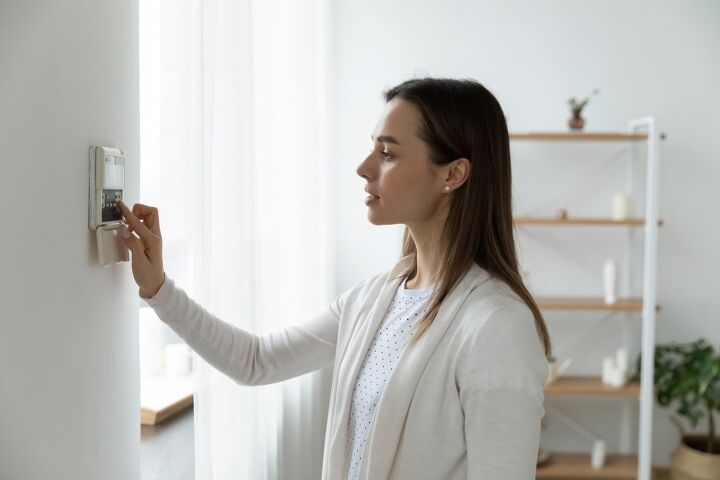






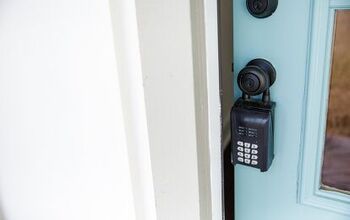




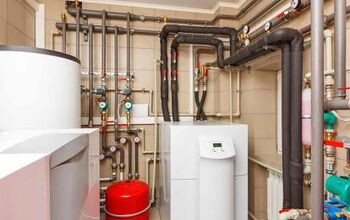


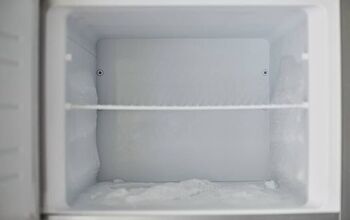
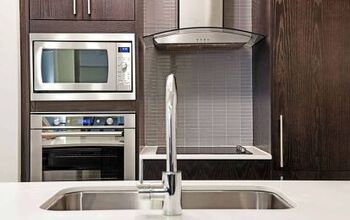


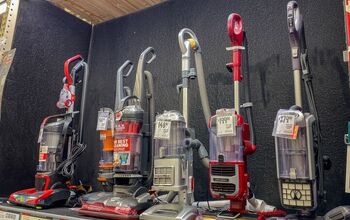
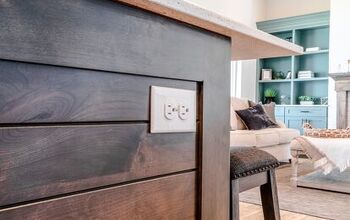
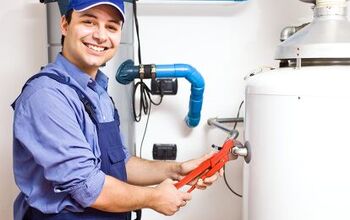
![How To Reset A Whirlpool Cabrio Washer [In 5 Easy Steps!]](https://cdn-fastly.upgradedhome.com/media/2023/07/31/9076531/how-to-reset-a-whirlpool-cabrio-washer-in-5-easy-steps.jpg?size=350x220)
